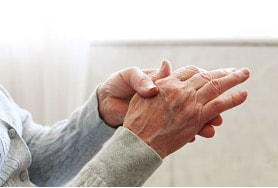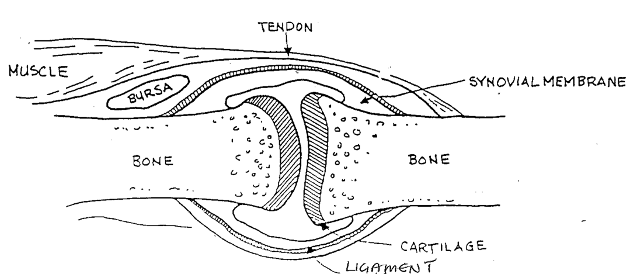|
Arthritis There are over 100 types of arthritis. Each type of arthritis is different, therefore, needs different treatment. Arthritis may cause pain, stiffness, swelling, tenderness or inflammation of the joints or affected areas. It can also prevent some movements which are necessary for the activities of daily living. It is important that people should try to learn as much as possible about this disease so that they may be able to understand how to control it. Did you know that:
Functional parts of a joint: Cartilage: A tough material that cushions and protects the ends of bones. (Example of arthritis in this part: osteoarthritis.) Synovial membrane: A thin layer of tissue which surrounds the joint and contains and produces a lubricating fluid (synovial fluid). This fluid oils the joint and is also responsible for keeping the cartilage healthy. (Examples of arthritis in this part: rheumatoid arthritis, gout.) Bursa: A small sac located near the joint which contains a lubricating fluid. This sac allows smooth movement of muscle across muscle and tendon across bone. (Example of inflammation of this part: bursitis.) Muscle: The muscles are elastic tissues that work together to move the bones by contracting and relaxing. (Example of involvement of this part: fibrositis.) Tendon: Tissue fibre which attaches muscle to bone. (Example of involvement of this part: tendonitis.) Ligament: Tissue fibre which attaches bone to bone. (Example of arthritis in this part: ankylosing spondylitis.) OSTEOARTHRITIS Also called: Degenerative joint disease Degenerative arthritis Osteoarthrosis What is it? Osteoarthritis is a degenerative disease which most often affects the ‘weight-bearing joints’ ie ankles, knees, hips, spine. The cartilage breaks down, tears, or rips and leaves the bone surfaces without a cushion. How do I get it? The cause of arthritis is not definitely known, but it can be caused by one or more of the following factors:
How does it affect me? Bony growths or ‘spurs’ may appear in the affected joint, causing intense pain and limited movement. Due to the lack of cartilage, bone surfaces rub together resulting in pain and limited movement.  RHEUMATOID ARTHRITIS What is it? Rheumatoid arthritis is a disorder which involves many of the body’s systems and often affects the toes, ankles, knees, shoulders, elbows and fingers. The synovial membrane which lines the joint, becomes inflamed. About one person in 100 of the population have rheumatoid arthritis, and two to three times more women do than men. How do I get it? There is no known specific cause of rheumatoid arthritis, but the latest theories suggest that it develops from a viral or bacterial infection. It is an auto-immune disease, which means your body is attacked by its own defence mechanism. How does it affect me? Rheumatoid arthritis causes many problems because it works on many of the body’s systems. Some of the problems are:
Reference: Healthy happy ageing: a positive approach to active living
Yvonne Wagorn, Sonia Théberge, Dr William R Orban Comments are closed.
|
AuthorShonagh O'Hagan Archives
July 2024
|


 RSS Feed
RSS Feed